Our Cup Overfloweth
Lacy Panyard knew from the time she was a little girl that she wanted to be an attorney. But it was a study abroad trip to Mexico with her school at the age of 17 that helped determine her specialty. She says, “While I was down there, I saw people who were wealthy and who have everything they need. They’re living better than us. And then I saw the people who are 5-year-olds, out on the street, selling gum and homemade goods because they don’t have food on the table.”
God's Work of Justice
Audrey’s first in-person introduction to the Clinic was through volunteering during Refugee Adjustment Day (RAD Day) in October of 2015. On that day, she witnessed dozens of immigrants and volunteer attorneys and staff working together to submit paperwork to United States Citizenship and Immigration Services (USCIS) to help refugees apply for their Legal Permanent Residence. On that day, Audrey remembers entertaining a Congolese woman’s three children, drawing pictures together while their mother worked with an attorney. By late afternoon, the woman’s paperwork was completed and her eyes filled with tears of joy. This experience especially convinced Audrey of the Clinic’s impact. She says, “Once these clients become more than just numbers, when they become faces, become names, when they are personalities that you come to know, it really changes the game. It makes it very personal, very urgent.”
Meet Volunteer Attorney, Brigadier General Art Johnson
Despite his positivity, Art is no stranger to hardship. Last year, he successfully underwent treatment for prostate cancer. Recently, he was diagnosed with Parkinson’s Disease. But he maintains an attitude of gratefulness. He says, “If I look at God’s grace, I have it in orders of magnitude.” He counts off his blessings: his career, getting to go to Law School, and, most of all, his wife, Penny. “No matter what happens, I’m blessed,” he says. “The Parkinson’s thing? That’s God’s will. He knew this was coming before I was born. And it’s just part of the deal.”
Setting the Financial Prisoner Free
Personally, Darrell finds fulfillment in bankruptcy law because he knows the need is so great. He says, “Freedom from debt is very, very important. The burden of living with debt and the harassment, the garnishments, the creditor calls, and not being able to pay your bills have a significant effect on a person’s mental and physical well-being. And a debt-laden marriage can oftentimes end in divorce because financial pressure is a significant reason for dissolution. So I think that when you file bankruptcy sometimes it really releases you and gives you some financial freedom and a fresh start from your mistakes.” By consistently taking on these cases, Darrell is able to act as a conduit, connecting his clients to this kind of freedom.
A Dream Diverted
Becoming friends with the parents of her children’s friends emphasized the blessings afforded her simply by being born in this country. “There but for the grace of God go I,” she says. “I didn’t do anything to deserve this. I just happened to be born in a family that happened to be here [in America].”
Volunteer Highlight: Karen Bruner Stroup
We can all be Connectors by translating who and what we know to assist our communities. At the Legal Clinic, that might mean helping clients collect their documents, bridging the gap between the pro bono housing counselor and the client who is facing foreclosure. Or it might mean helping someone who was recently laid off apply for food stamps. As a Connector, you can ensure that those in our community are able to find and utilize the many resources that may be available, but impossible for them to reach without your helping hand.
